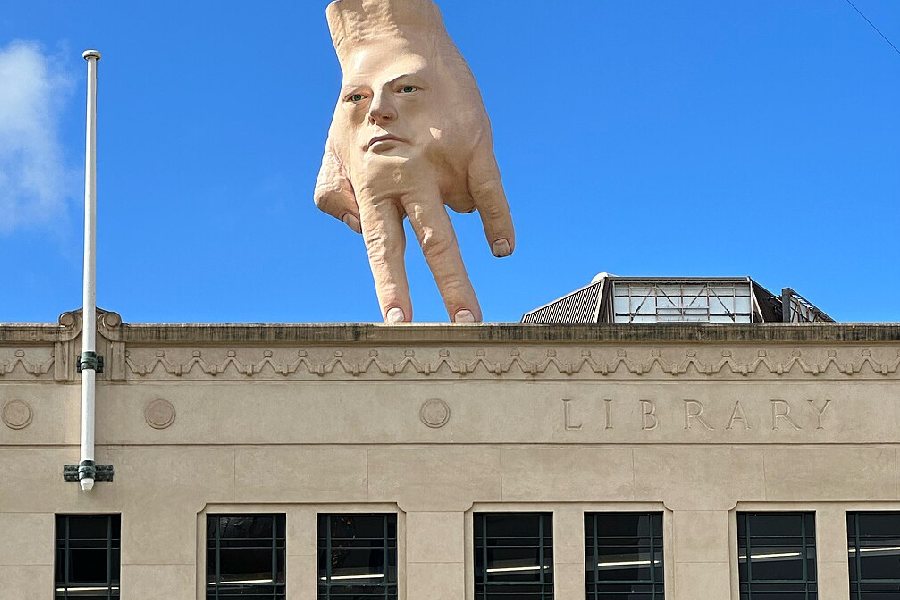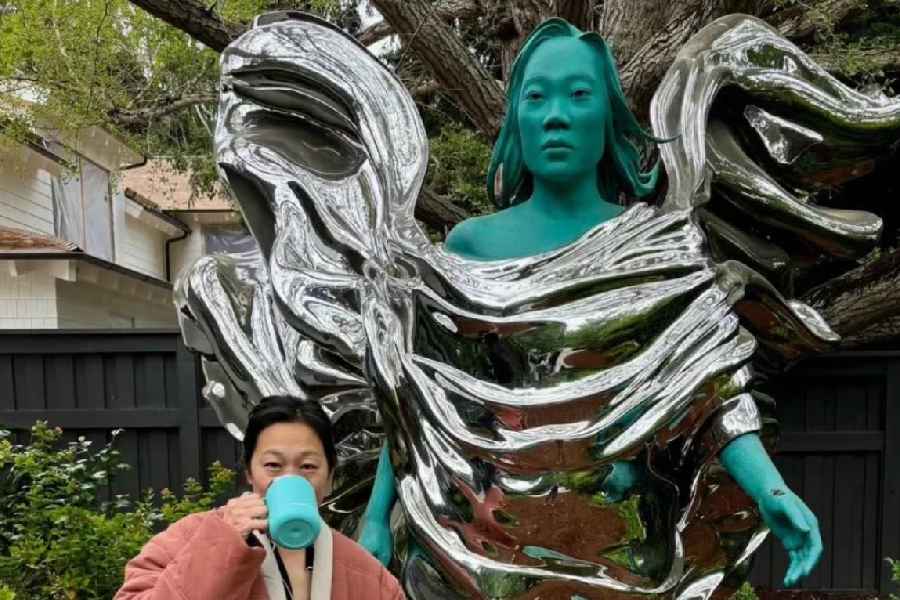Perched on two fingers on the roof of an art gallery in Wellington, New Zealand, the giant sculpture of a hand has loomed over the city for five years.
Named Quasi, the 16-foot — almost 5 meters — creation of Australia-based sculptor Ronnie van Hout bears an unsmiling human face — because why not?
Some found it disturbing, and now, after five years of provoking controversy and myriad emotions — from horror and revulsion to delight — among residents of New Zealand's capital, Quasi will be removed from the roof of City Gallery this week.
It will be taken to a new home, the gallery said Wednesday.
“This is either a great day for Wellington or a terrible day for Wellington and there's not much view in between,” said Ben McNulty, a Wellington city council member.
Personally, McNulty told The Associated Press he felt “devastated” by the sculpture's departure.
Quasi is made of steel, polystyrene and resin, and was based on scans of van Hout's hand and face. It was named in part for Quasimodo, the bellringer in Victor Hugo's 1831 novel “The Hunchback of Notre-Dame.”
Hence the male gender some have attributed to Quasi.
Quasi first graced — or haunted — an art gallery in Christchurch, New Zealand, in 2016 but proved polarizing. It was the subject of an op ed in the local newspaper listing reasons the sculpture “must go,” including claims that one of its outstretched fingers “appears to be inappropriately and belligerently pointing at pedestrians and office workers.”
“Perhaps the monster just wants to be loved?” van Hout responded at the time.
In 2019, Quasi was installed in Wellington, where he grew over time on its residents.
“He arrived and I won't say the city unanimously hated him but I reckon 80% were like, What is this monster? What have we done?'” McNulty said.
“But I think that over time there's been a bit of a softening, there's sort of a pro-Quasi group, which I consider myself part of,” he added.
On Wednesday, many at Wellington's Civic Square, where the gallery with Quasi is located, said they had warmed to him too.
“It's really disturbing but it's a staple of Wellington now,” said Anja Porthouse, who had brought friends and family to see Quasi and was “gutted” it was leaving.
Quasi is to be lifted from the roof by helicopter on Saturday, when the giant hand will travel to an undisclosed location in Australia, the gallery said.
“Everything comes to an end eventually,” van Hout told the AP. “I am sure it will be missed, but even Lovecraftian nightmares have to return to where they came from, and now you only have an absence to reflect on.”
Dozens responded to the news on social media with dismay, glee and jokes about the curse that local lore has attributed to Quasi being lifted.
The sculpture has adorned the Wellington skyline during “some of its most difficult times,” McNulty said. The city has struggled with earthquake-prone buildings, widespread plumbing problems and political division in recent years.
Other comments took guesses about where Quasi might end up.
“He's going to The Hague,” wrote one New Zealander on X.
“He will be missed,” said Jane Black, who heads the Wellington Sculpture Trust.
“I'll personally be pleased to see it head somewhere else for a change,” the city's mayor, Tory Whanau, told the AP. “I think there's a strong feeling of relief.”












